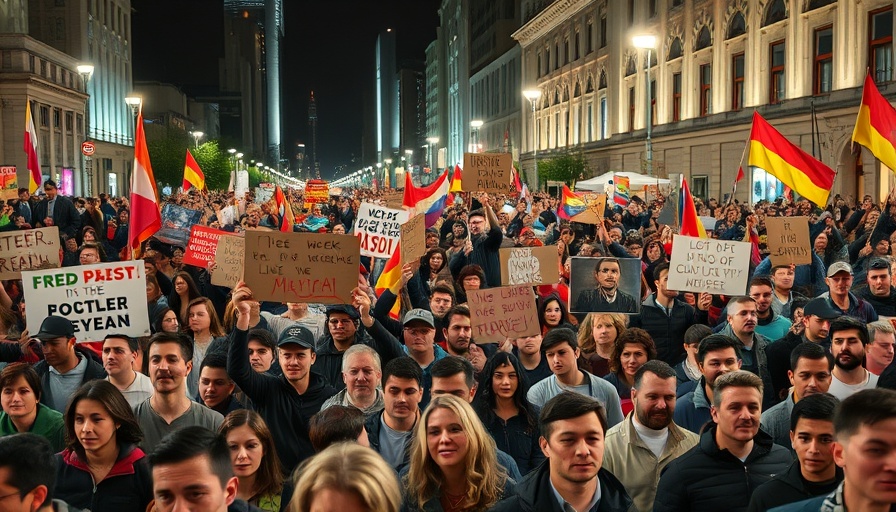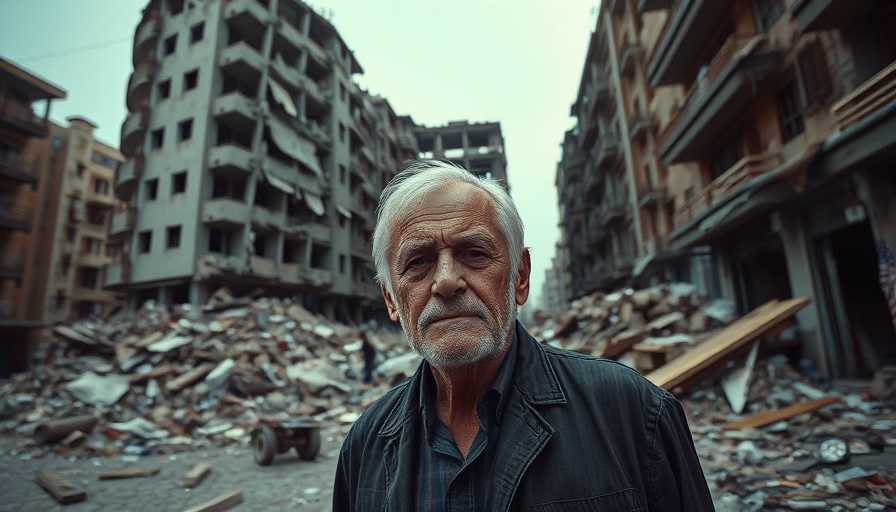
Protests Erupt Over Netanyahu's Gaza Strategy
In a striking display of dissent, thousands of Israelis took to the streets, voicing their opposition to Prime Minister Benjamin Netanyahu's plans to escalate military operations in Gaza. This surge of public outcry reflects the complex dynamics in Israeli society amid ongoing conflict and humanitarian crises, as demonstrators call for peace and the safe return of hostages held by Hamas.
Growing Frustration Highlights Divisions
More than 100,000 people gathered in Tel Aviv to express their frustration with the government’s approach to the worsening situation in Gaza, indicating a deep divide in public opinion. Among those present were families of hostages, illustrating the personal stakes entangled in this political turmoil. The fears surrounding the well-being of these hostages exacerbate the emotional charged atmosphere of the protests, with many questioning the effectiveness of continued military action.
International Response and Implications
Netanyahu's announcement of a planned invasion of Gaza City has drawn sharp condemnation from the international community. A coalition of nine countries including Germany, France, and the UK issued a joint statement rejecting Israel's military escalation, arguing that it would exacerbate an already dire humanitarian crisis in Gaza. This stance underscores the fragile state of international relations as various nations seek to balance support for Israel with growing concerns over human rights violations.
The Call for Ceasefire and Diplomacy
As hopes for a ceasefire dwindle, discussions aimed at releasing hostages have collapsed, leaving families anxious about their loved ones. While Netanyahu insists that military actions are crucial for the safe return of hostages, critics highlight the need for diplomacy, pointing out that many freed hostages were the result of negotiation rather than force. This raises critical questions about the effectiveness of military escalation as a strategy for resolving hostage crises.
Humanitarian Concerns and Local Perspectives
The protests are not just a reaction to government policies but also a reflection of growing humanitarian concerns. The military action threatens to deepen the humanitarian woes faced by the Palestinian population in Gaza, leading to further displacement and suffering. By rallying against Netanyahu's plans, demonstrators emphasize the dire need for a peaceful resolution that prioritizes human rights and dignity.
Future Predictions: Potential Consequences of the Escalation
As the situation unfolds, the implications of Israel’s military strategy could have both immediate and long-term effects. Analysts predict that continued aggression may spark broader regional instability, inciting violent backlash beyond Gaza's borders. This possible escalation raises concerns of a more extensive conflict that could involve neighboring countries, complicating an already intricate geopolitical landscape.
Final Thoughts on the Protests and Future Directions
The public outcry against Netanyahu’s military plans reveals a pivotal moment in Israeli politics. As the country grapples with its policies, the voices of the citizens—especially those impacted directly by the conflict—underscore a longing for peace, accountability, and humanitarian considerations. The protests highlight a crucial turning point, where the appetite for war battles with the hope for peace and resolution.
 Add Row
Add Row  Add
Add 




Write A Comment